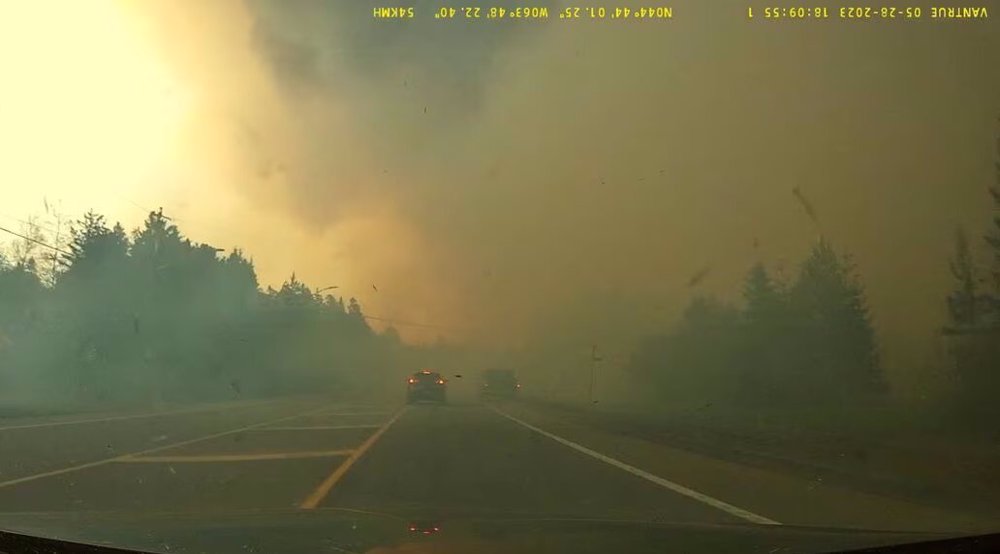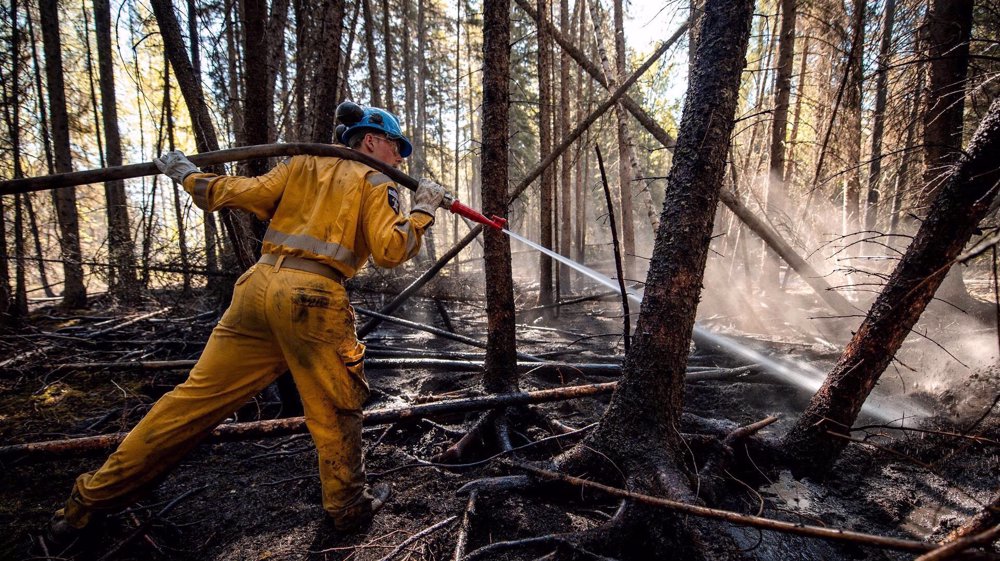Report: Canada wildfires burned over 10mn hectares this year
Canadian wildfires have burned more than 10 million hectares (24.7 million acres) of land this year, a record-breaking figure that has surpassed scientists' most pessimistic predictions.
According to national figures from the Canadian Interagency Forest Fire Center (CIFFC), which were released on Saturday, the prior all-time high occurred in 1989, when 7.3 million hectares were burned over the course of an entire year.
The area burned this year in just six and a half months is roughly equivalent to the size of Portugal or Iceland.
In total, 4,088 fires have occurred since January, including many blazes that have scorched hundreds of thousands of hectares.
More than 150,000 people have been displaced, and a 19-year-old firefighter died Thursday.
"We're dealing with immense areas," Colonel Philippe Sansa, who heads a detachment of French firefighters deployed in hard-hit northern Quebec, told AFP, adding, "The fire we're managing is 65 kilometers (40 miles) long, which poses enormous organizational challenges."
Sansa said his team, in France, would be able to deploy far more firefighters and helicopters on a blaze 100 times smaller.
The majority of fires have occurred far from inhabited areas, but they still have serious consequences for the environment.
"We find ourselves this year with figures that are worse than our most pessimistic scenarios," Yan Boulanger, a researcher at Canada's Natural Resources Ministry, told AFP.
"What has been completely crazy is that there has been no respite since the beginning of May," he said.
As of Saturday, there were 906 active fires in the country, including 570 deemed out of control -- with no province spared.
The dire situation has shifted across the country in recent months: In May, at the beginning of the wildfire season, Alberta in the west was the center of attention with unprecedented blazes.
Several weeks later, Nova Scotia, an Atlantic province with a mild climate, took up the baton, followed by Quebec, where huge fires created plumes of smoke that even blanketed parts of the United States.
Since the beginning of July, the situation has taken a dramatic turn in British Columbia, with more than 250 fires starting in just three days last week, mostly triggered by lightning.
Much of Canada is suffering from severe drought, with months of below-average rainfall and warm temperatures.
The country is warming faster than the rest of the planet because of its geography, and has been confronted with extreme weather events whose intensity and frequency have increased due to climate change, scientists say.
The vast green ring of forests in the planet's northern regions -- including Canada -- is vital to the Earth's health.
And given the density of underbrush, wildfires in the north can liberate far more carbon per area burned than some other ecosystems; thereby further contributing to the planet's warming, in a vicious circle.
(Source: AFP)
Hezbollah strikes Israeli surveillance, military base in Golan Heights, occupied lands
Iran holds funeral for 165 children murdered in US-Israeli aggression
Iran destroys main command building, headquarters of US air base in Bahrain
US embassy in Saudi capital set ablaze after drone attack: Riyadh
Saudi Arabia, Qatar foiled Mossad bombing plots on their soil: Tucker Carlson
Iran's firm response will last as long as attacks do: Envoy
Shedding of American, Iranian blood on ‘Israel firsters’: Iran FM
Iran condemns IAEA inaction as US-Israeli aggression targets nuclear facilities












 This makes it easy to access the Press TV website
This makes it easy to access the Press TV website